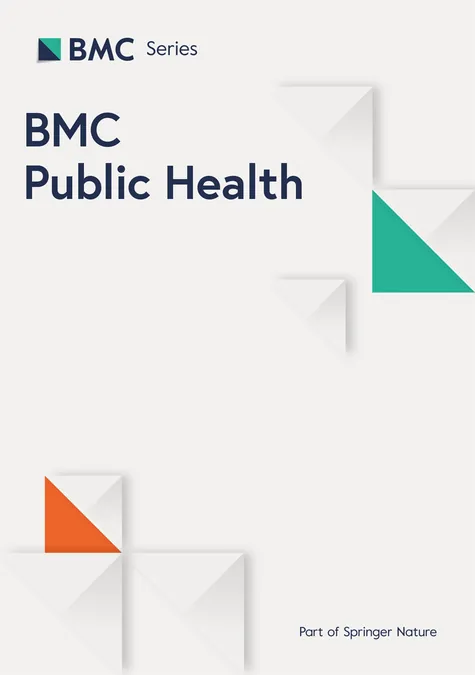
Navigating Parenthood during the COVID-19 Lockdown in Italy: Insights from the BiSogni Study
2024-12-21
Author: Siti
Introduction: The Birth Care Pathway in Crisis
The COVID-19 pandemic has transformed the landscape of healthcare across the globe, particularly in maternal care. A recent exploratory qualitative study, known as the BiSogni Study, has shed light on the emotional and practical needs of parents during this tumultuous period, especially during Italy's lockdown. Involving 86 participants, including pregnant women, new parents, grandparents, and healthcare professionals (HCPs), this research provides a rare glimpse into the profound challenges faced within the Birth Care Pathway during these unprecedented times.
Key Findings: The Struggles of Motherhood and Fatherhood
The lockdown revealed several critical themes among the participants, chiefly focusing on emotional isolation, needs for support, and the sudden shifts in family dynamics. Mothers frequently expressed anxiety regarding their partners' absence during labor, highlighting how psychological support is crucial during this vulnerable time. A pregnant woman shared, “Thinking of myself during labor without my husband next to me was worrying; his presence relieves me from the pain at that moment.” Fathers echoed these sentiments, voicing concerns over being unable to support their partners during childbirth, which often led to feelings of helplessness. “Not having news for 12 hours makes you feel helpless because you don’t know what to think or do,” stated one father, reflecting the emotional turmoil experienced by many. Moreover, the study highlighted that the lockdown led many couples to experience feelings of isolation during their antenatal and postnatal care as fathers were often barred from participating in important moments like ultrasounds and delivery.
Adapting to New Norms
Interestingly, some unexpected positives emerged from these hardships. Remote work, mandated by the pandemic, allowed many fathers to spend more time at home, fostering a strong family bond. One father remarked, “We experienced the pregnancy twenty-four hours a day together, which wouldn’t have happened in normal times.” On the other hand, many reported the challenges of balancing remote work and childcare. Fathers voiced concerns of guilt when leaving for work, intensifying the emotional strain on new families already grappling with the pressures of parenthood and fear of contagion.
Grandparents: The Silent Sufferers
The restrictions placed on close family interactions profoundly impacted grandparents, who found themselves longing for connection with their grandchildren. Many relied on video calls to bridge the emotional gap, yet nothing could replace the warmth of physical presence. One grandparent poignantly expressed, “Even though we see them every day via video call, the human contact, the touching, the hugging… all these things are missing.”
Healthcare Perspectives: The Pressure on Providers
HCPs described a stressful work environment, where daily instructions on safety protocols shifted rapidly, creating confusion and fatigue. They, too, felt the emotional weight of the restrictions imposed on mothers and families, struggling to provide care while often feeling like they could not meet the healthcare needs fully. An HCP reflected, “What frustrated us most was the management of the COVID-19 pathways, making it challenging to focus on women and labor care.”
Towards a Responsive Future: The Lessons Learned
The findings from the BiSogni Study underscore essential lessons for future healthcare policy and preparedness surrounding maternal care during emergencies. Despite the impactful challenges, the responses from health services, such as transitioning to telehealth consultations, showcased adaptability and commitment to care. Parents reported a need for timely and consistent information regarding health risks during pregnancy and postpartum. Unfortunately, misinformation and rapidly changing recommendations left many feeling lost. As changes occurred in healthcare policies, the necessity for clear, consistent communication became evident.
Conclusion: Building Resilience for Future Crises
The BiSogni Study represents a vital resource for understanding the effects of COVID-19 on families navigating new parenthood. Its insights underline the importance of emotional and practical support systems for parents, families, and healthcare providers alike. As we recover from the pandemic, it becomes imperative to incorporate these findings into future healthcare frameworks, ensuring that no parent feels isolated during such significant life transitions. As the world braves ongoing challenges, let’s not forget the lesson that family support is paramount in safeguarding the emotional well-being of new and expecting parents.





 Brasil (PT)
Brasil (PT)
 Canada (EN)
Canada (EN)
 Chile (ES)
Chile (ES)
 España (ES)
España (ES)
 France (FR)
France (FR)
 Hong Kong (EN)
Hong Kong (EN)
 Italia (IT)
Italia (IT)
 日本 (JA)
日本 (JA)
 Magyarország (HU)
Magyarország (HU)
 Norge (NO)
Norge (NO)
 Polska (PL)
Polska (PL)
 Schweiz (DE)
Schweiz (DE)
 Singapore (EN)
Singapore (EN)
 Sverige (SV)
Sverige (SV)
 Suomi (FI)
Suomi (FI)
 Türkiye (TR)
Türkiye (TR)